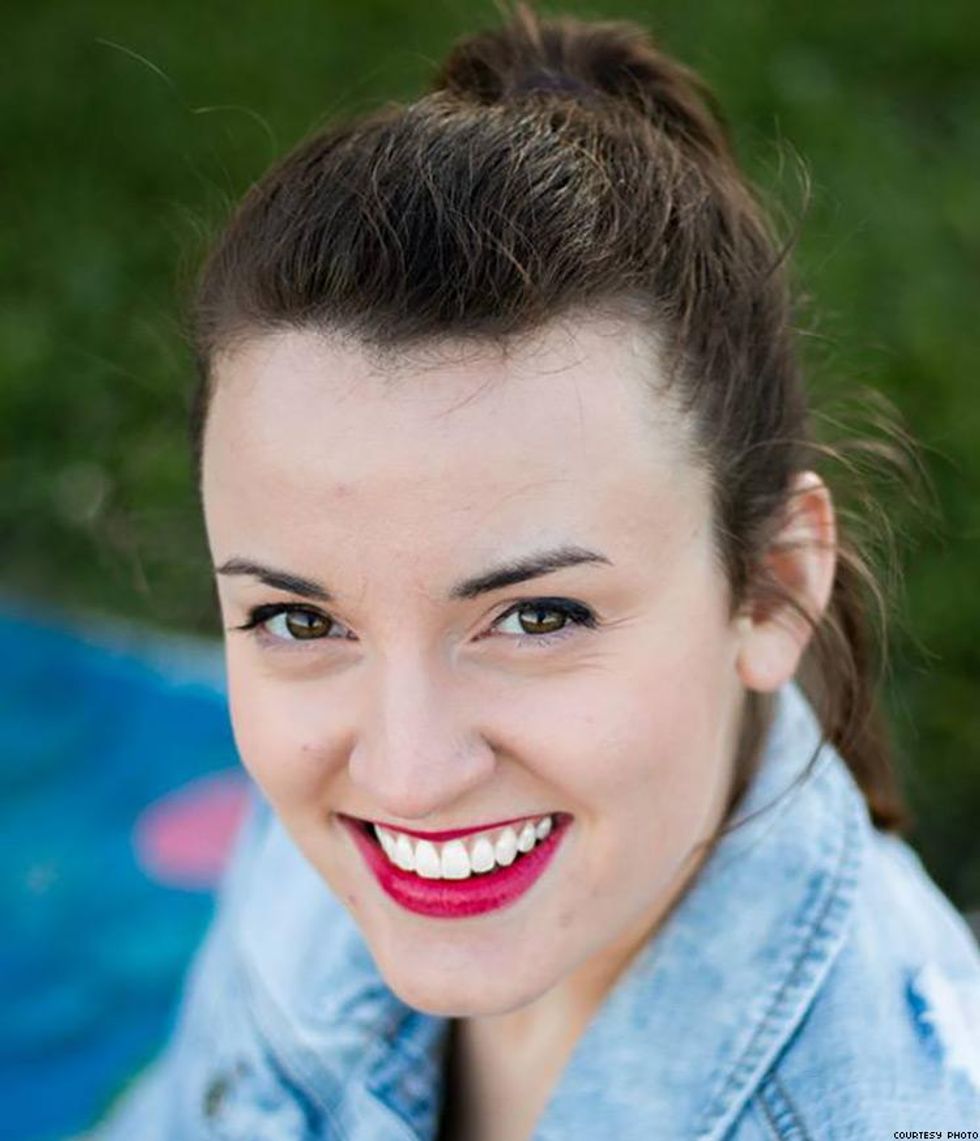This month LGBT Americans observed National Coming Out Day, which serves as a call to be out and proud and a recognition that showcasing your identity is an empowering act that can also help change anti-LGBT attitudes. But one's religious beliefs can sometimes complicate coming out. The Advocate has interviewed people from a variety of faiths about how their religion affected their coming-out and vice versa. In the first in this series, we speak to a graduate student at a Roman Catholic college.

Elizabeth Sextro realizes the Roman Catholic Church probably won't change its teachings on homosexuality in her lifetime -- but that doesn't keep the 20-something theology graduate student from identifying both as a queer woman and a faithful Catholic.
Reconciling these two identities was "definitely a difficult process," says Sextro, who's working on a master's degree in theological studies at Boston College's School of Theology and Ministry. Nevertheless, she says, "it's who I am."
Sextro, a self-described "cradle Catholic" originally from St. Louis, came out as queer in 2012, when she was an undergraduate at Loyola University in Chicago. "Coming out at college was really easy," she says. "I had a lot of supportive friends."
She was able to resolve any conflict between her queer and Catholic identities, she says, through her studies and through talking with those supportive friends who had been through similar experiences.
It also helped that Loyola, like Boston College, is run by the Jesuits, a Catholic religious order known for scholarship and progressive ideology. She studied queer theology, which rejects the idea that LGBT people are abnormal or disordered, as the Catholic Church has long held, and she had a faculty mentor, a straight layman, who encouraged her.
Coming out to her parents was more problematic. They aren't quite at a place of acceptance even now, she says, but they have advanced to the point that she can bring her female partner home. "We still have work to do," Sextro says of her family relationship.
There is certainly still work to do in the church, where, she says, the faithful are far ahead of the hierarchy. "I see gay people everywhere" when she attends Catholic services, says Sextro, who divides her time between a couple of congregations in Boston.
The church deems same-sex relationships sinful, and it expects Catholics with same-sex attractions to avoid acting on them. The catechism -- a summary of church doctrine -- holds that "homosexual acts are intrinsically disordered." Pope Francis, while more conciliatory toward LGBT people than his predecessors were, has held to traditional doctrine. But many in the church are rejecting anti-LGBT teachings and recognizing that the language in the catechism is harmful, Sextro notes.
"It's going to be baby steps from here on out," she says of the process of changing the church. It may even have women priests before it discards anti-LGBT doctrine. "It's not going to happen in my lifetime, but hopefully it will," says Sextro, who expects to finish her master's degree in the spring, then aims to eventually get a Ph.D. and teach at the university level.
One of the main reasons she stays in the church, she said, is to help that change along. "I stay because there is more work to be done in the church and because I feel committed and responsible as an aspiring theologian myself to offer a critical perspective to the Catholic Church," she says. "That's not to say that I have not considered leaving -- I certainly have. That would be a heck of a lot easier. But I borrow from one of my professors at the [School of Theology and Ministry] in saying this: If you are looking for a perfect church in this life, you will be looking forever. No church is perfect, and I stay because I can offer something to the church as a queer woman and theologian that may bring the church a little bit closer to working toward justice. I wouldn't stay if I didn't have hope."
For LGBT Catholics to be out and proud can contribute to change, she says, but she recognizes that coming out is an individual decision. "Coming out is really difficult," she says. "No one should feel pressure to come out in order to advance a certain cause."
Part of being a person of faith, she adds, is "putting trust in something outside of yourself" and realizing that some things are out of your control. That approach is also helpful when thinking about progress in the church -- knowing she can make a contribution, but she can't make it all happen, she says. And then there is what Emily Dickinson called "the thing with feathers -- that perches in the soul ... and never stops."
"I've really latched on to hope," Sextro says. "And I think hope is huge."





































































Charlie Kirk DID say stoning gay people was the 'perfect law' — and these other heinous quotes